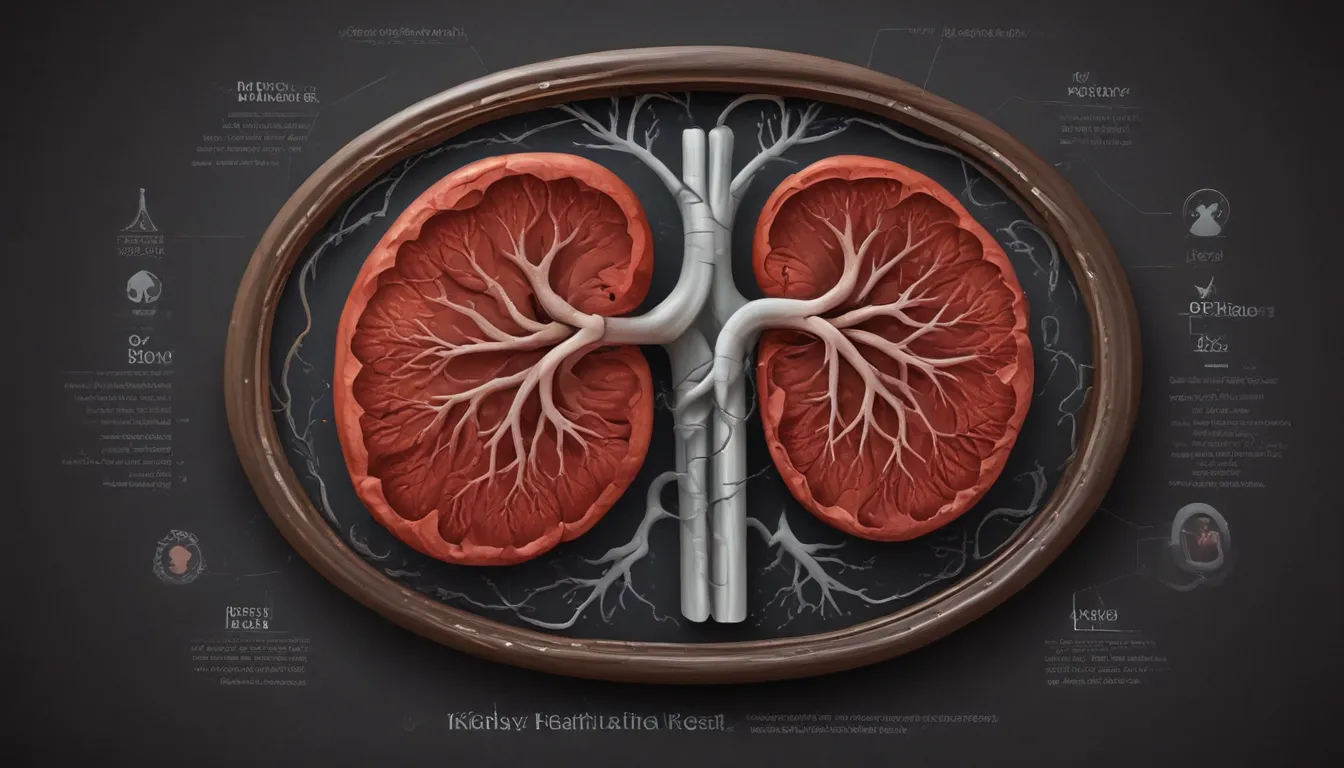The pictures in our articles might not always show exactly what the text is talking about. We use these images to make the article more interesting and eye-catching. They are there to add to the text, but not to replace it or show every detail.
Have you ever wondered about the amazing role your kidneys play in keeping your body healthy and functioning properly? These bean-shaped organs are not only vital for filtering waste and excess fluids from your bloodstream but also for regulating blood pressure, producing essential hormones, and so much more. Let's dive into 15 fascinating facts about kidneys that will help you understand and appreciate their importance in maintaining your overall well-being.
Key Takeaways:
- Small but Mighty: Kidneys filter 150-180 liters of blood daily and produce essential hormones for your health. Taking care of them through a balanced diet and hydration is crucial for overall well-being.
- One Kidney is Enough: Even with just one kidney, your body can function normally. Protect your kidneys by maintaining a healthy lifestyle and getting regular check-ups.
The Kidneys: Bean-Shaped Marvels
Your kidneys are two bean-shaped organs located on either side of your spine, just below your rib cage. Each kidney is about the size of a fist, yet they perform incredible functions that are essential for your well-being.
Filtering Power: 150-180 Liters a Day
Despite their small size, The kidneys are incredibly efficient organs. They filter around 150-180 liters of blood per day, removing waste products and excess fluid to produce urine.
Blood Pressure Regulation
Your kidneys play a crucial role in maintaining your blood pressure levels. They produce a hormone called renin, which helps regulate blood volume and control blood pressure, ensuring your cardiovascular health.
Waste Removal Specialists
One of the primary functions of the kidneys is to filter waste and toxins from your blood. They eliminate substances like urea, creatinine, and excess minerals through urine, keeping your body clean and healthy.
Erythropoietin Production
Erythropoietin, a hormone produced by the kidneys, stimulates the production of red blood cells in the bone marrow. This process is essential for maintaining a healthy level of oxygen-carrying cells in your bloodstream.
Vitamin D Activation
Your kidneys play a crucial role in converting inactive vitamin D into its active form, which is essential for the absorption of calcium and phosphorus in your intestines. This ensures healthy bone formation and overall bone health.
pH Balance Maintenance
The kidneys help regulate your body's acid-base balance by excreting hydrogen ions and reabsorbing bicarbonate ions. This delicate balance ensures that your blood pH remains within a narrow range for optimal metabolic function.
Millions of Nephrons
Each kidney contains millions of nephrons, which are microscopic structural units responsible for filtering the blood. These nephrons play a crucial role in the filtration process, ensuring that your blood stays clean and free of toxins.
Urine Concentration Adjustment
Your kidneys have the remarkable ability to adjust urine concentration based on your body's fluid and electrolyte needs. This ability allows them to maintain proper hydration levels and prevent dehydration, keeping you healthy and well-hydrated.
One Kidney Can Still Function
The human body can function perfectly with just one kidney. Whether you are born with one kidney or have one removed due to transplantation or surgical procedures, your remaining kidney is capable of performing all the necessary functions.
Kidney Health and Diseases
Unfortunately, kidneys can be susceptible to various diseases such as kidney stones, urinary tract infections, polycystic kidney disease, and kidney failure. Regular check-ups and a healthy lifestyle can help prevent these conditions and ensure your kidneys remain healthy.
High Blood Pressure Impact
Uncontrolled high blood pressure can damage the blood vessels in your kidneys, leading to kidney disease and impaired kidney function. Maintaining a healthy blood pressure level is crucial for kidney health and overall well-being.
Importance of a Healthy Diet
A balanced diet rich in fruits, vegetables, whole grains, and lean proteins is essential for kidney health. It is important to limit the intake of processed foods, salt, and sugary drinks, as they can strain the kidneys and lead to health issues.
Hydration for Kidney Function
Staying hydrated is crucial for maintaining optimal kidney function. Drinking an adequate amount of water helps flush out toxins from your body, preventing the formation of kidney stones and ensuring your kidneys function properly.
Kidney Donation and Transplantation
Kidney transplantation is a life-saving procedure for individuals with kidney failure. Organ donation can significantly improve the quality of life for recipients and is a powerful act of kindness that saves lives and restores health.
In conclusion, kidneys are vital organs that play a crucial role in maintaining our overall health and well-being. Understanding their importance and taking steps to keep them healthy is essential for a long and healthy life. Cherish and give your kidneys the attention they deserve for a healthier future.
FAQs
Q: What are the main functions of the kidneys?
A: The main functions of the kidneys are to filter waste products from the blood, regulate fluid levels in the body, balance electrolytes, and produce hormones necessary for the production of red blood cells.
Q: How can I keep my kidneys healthy?
A: To keep your kidneys healthy, it is important to drink plenty of water, eat a balanced diet low in sodium and processed foods, exercise regularly, avoid smoking and excessive alcohol consumption, and manage conditions such as diabetes and high blood pressure.
Q: What are some common kidney disorders?
A: Common kidney disorders include kidney stones, urinary tract infections, kidney infections, polycystic kidney disease, and chronic kidney disease.
Q: Can I live with only one kidney?
A: Yes, it is possible to live a healthy life with only one kidney. Many people are born with one kidney or may need to have a kidney removed due to medical conditions. However, it is important to take extra care of the remaining kidney and follow a healthy lifestyle.
Q: How often should I get my kidneys checked?
A: It is recommended to have regular check-ups with your healthcare provider and get your kidneys checked at least once a year, especially if you have risk factors such as diabetes, high blood pressure, or a family history of kidney disease.
Trust in our commitment to quality and authenticity as you learn and explore with us. Our diverse insights and information aim to provide you with credible and reliable content that enhances your understanding of essential health topics. Stay informed, stay healthy, and cherish your kidneys for a vibrant and fulfilling life.






